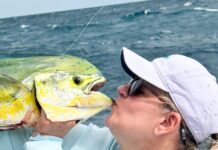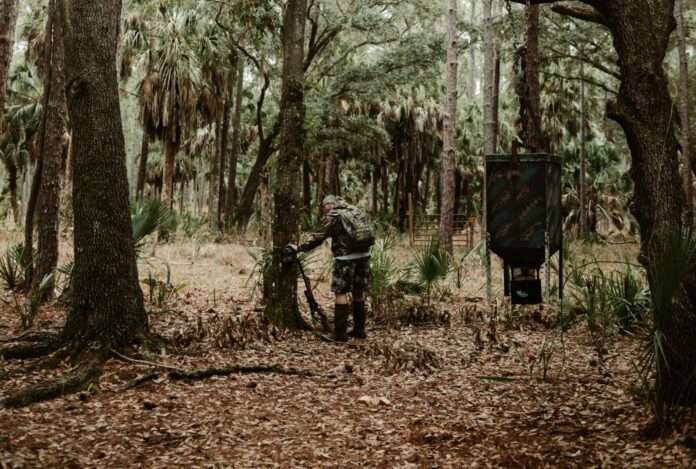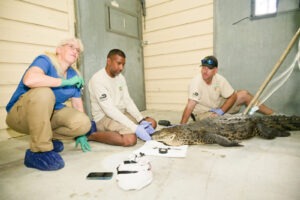For its proponents, Florida’s Right to Hunt and Fish Amendment – also called Amendment 2, on the ballot this November – is a matter of protecting a basic right and “fundamental tradition” shared among the state’s sportsmen. But its detractors say it’s a totally unnecessary addition that could spell problems for valued species down the line – and both sides are painting vastly different pictures of the amendment’s implications.
Text of the amendment, approved for the ballot in April 2023 by the Florida House and Senate with 116-0 and 38-1 votes, respectively, “preserve(s) forever” hunting and fishing by “traditional methods” as a “public right,” further adding that hunting and fishing are the “preferred means of responsibly managing and controlling fish and wildlife.” If approved by the required 60% margin, it would take effect in January 2025.
“Hunting and fishing bans were considered in at least a dozen states in 2022, the worst of which was a ballot initiative in Oregon that would have criminalized hunting, fishing and farming,” states the group leading the charge behind the amendment, Yes On 2 Florida (voteyeson2florida.com), adding that 23 states have already passed similar constitutional amendments.
Supporters of the bill include FWC chairman Rodney Barreto, Florida state Sen. Jim Boyd (R), state Rep. Lauren Melo (R) and House Speaker Paul Renner (R), along with a host of fishing, hunting and marine industry-related associations, including the National Rifle Association and the American Sportfishing Association.
“Many people don’t realize the economic value fishing and hunting provides our great state, combining just over $15 billion annually,” said Melo. “Passing this legislation is a powerful statement that we support and champion our fishing and hunting traditions, and we want to protect (them) for our future.”
The amendment’s detractors, led by political committee No To 2 and composed largely of wildlife and animal advocacy groups, say the bill is dangerous and misleading for those who aim to protect and conserve wildlife, primarily taking aim at two phrases for different reasons: “traditional methods” and “preferred means.”
They argue that the “traditional method” phrase is intentionally vague in order to deceive Florida’s voters and force an amendment that could be used to eventually bring back brutal trapping methods, deadly gill nets or other now-banned practices. Yes On 2’s website refutes this claim, stating that a “traditional method” refers to “that which is legal at the time of passage,” but neither the final amendment text nor its posted analyses from legislative committees contains any clarifying language to define “traditional methods.”
Meanwhile, No To 2 says, establishing hunting and fishing as the “preferred means” for wildlife control would set a precedent that nonviolent methods to deter or relocate problematic or dangerous wildlife would be considered only after lethal alternatives.
Numerous editorials and sites opposing the amendment state that the bill could be the key to open fire once again on species like black bears, which have seen increased interactions with humans in recent years. In 2015, Florida opened a controversial state bear kill for the species after conservation efforts increased their numbers from a few hundred in the 1970s to more than 4,000. But the hunt was called off after just two days when nearly 300 bears were killed, with some regions of the state doubling or nearly tripling their allotted quotas.
No To 2 also says a constitutional change is unnecessary, as Florida Statute 379.104 already calls hunting and fishing “a valued part of the cultural heritage of Florida” that should be “forever preserved.” Elevating the right to a constitutional “public right” could further open the door and create guarantees for international hunters or commercial fishing operations, the group warns.
“The biggest concern for me and other mainstream conservationists is that the amendment proclaims hunting and fishing the ‘preferred means of responsibly managing and controlling fish and wildlife,’” wrote Florida Audubon Society president emeritus Clay Henderson in an Orlando Sentinel editorial. “Often the preferred means to conserve fish and wildlife is to limit hunting and fishing to protect their numbers.”
“Many of us think this proposal is just a door to bring back bear hunting,” he continued. “As one of a few lawyers who have drafted most of the environmental provisions of Florida’s constitution, I can tell you that every word matters in a proposed amendment.”
Though the amendment’s final draft specifies that its passage “does not limit the authority granted to the Fish and Wildlife Conservation Commission,” its first iteration contained protections that the change “(would) not limit or restrict any law relating to trespass, property rights or eminent domain.” That text was later removed, prompting naysayers to argue that the bill “threatens to enable hunters to trespass onto your property in pursuit of the animals they want to kill,” while supporters said that “including a private property provision (against trespassers) would have been redundant” as “these protections already exist in Florida.”
























